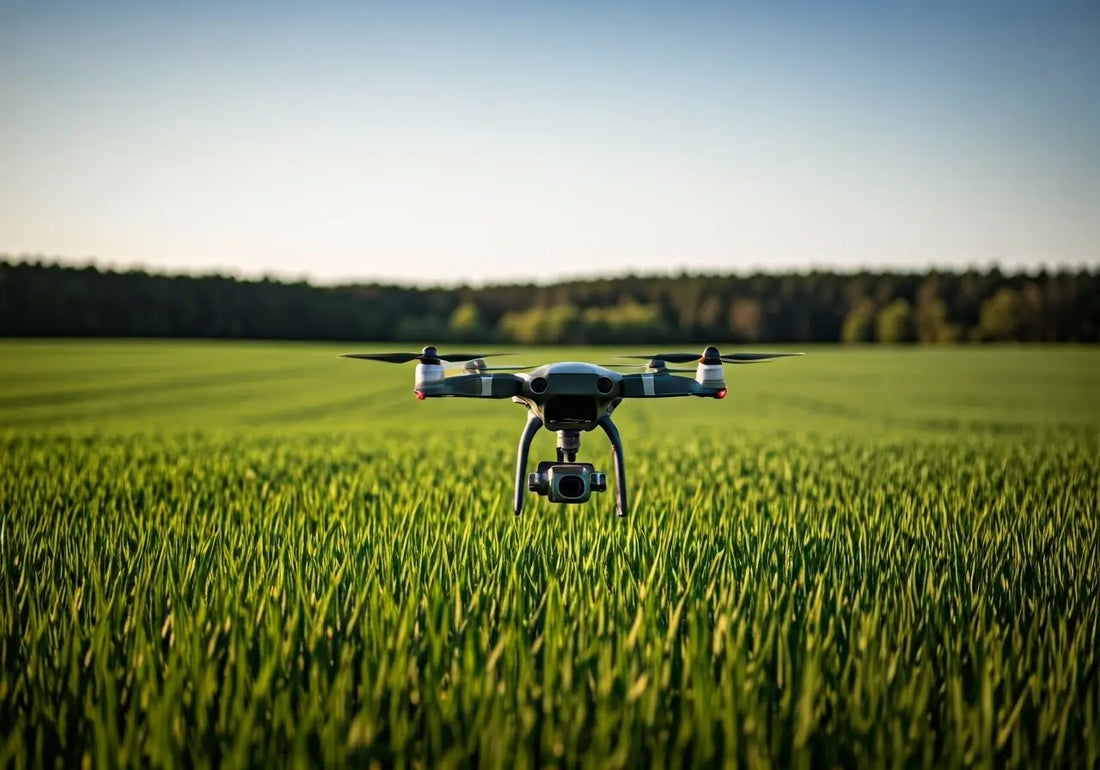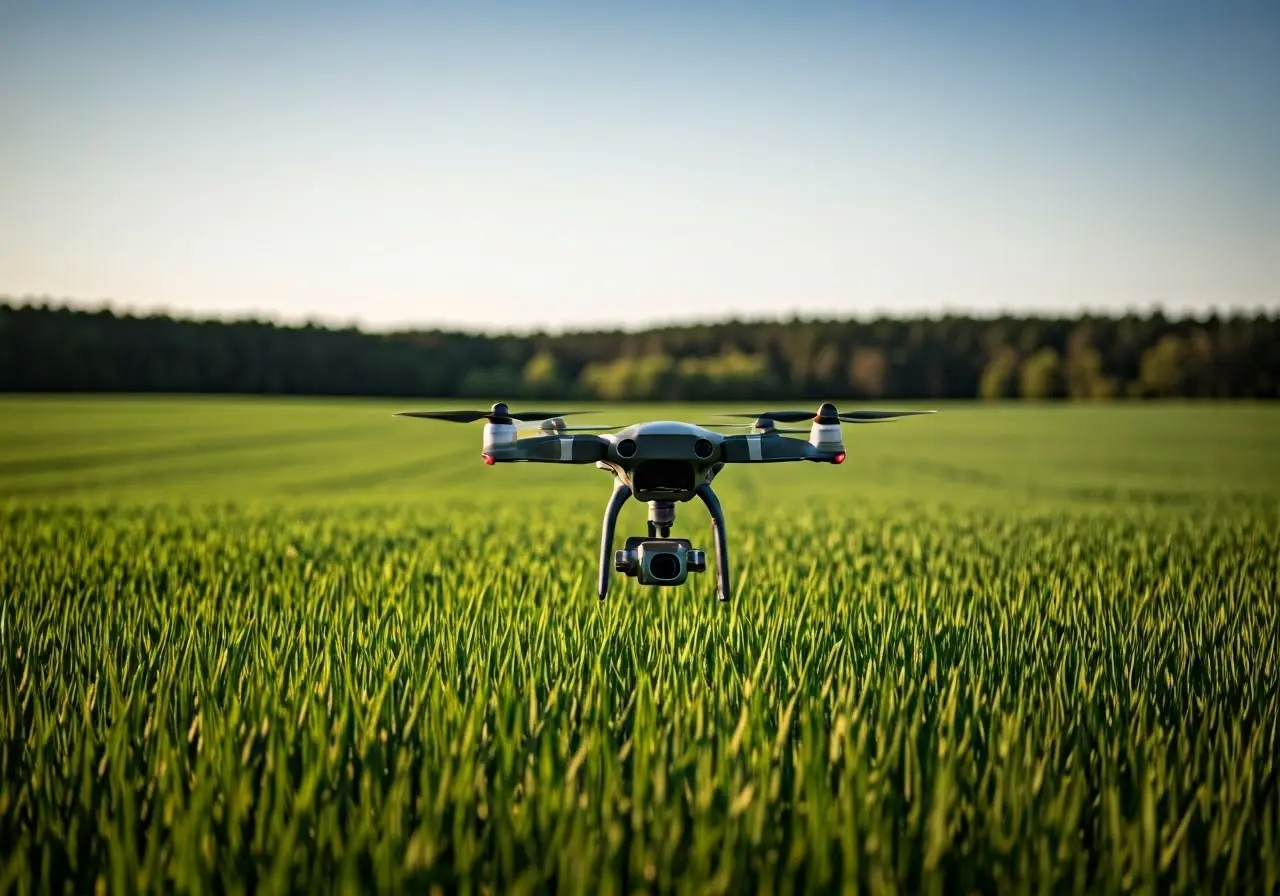
Can Smart Farming Drones Improve Crop Yields?
Share
In the modern agricultural landscape, technology is playing a transformative role. One such innovation is the use of smart farming drones. But can these high-tech gadgets truly enhance crop yields? In this blog, we’ll explore how smart farming drones work and their potential to revolutionize farming practices.
What Are Smart Farming Drones?
Smart farming drones are unmanned aerial vehicles equipped with advanced sensors and camera systems. They are designed to assist farmers by providing aerial views and data that are crucial for monitoring and managing crops.
Equipped with sophisticated capabilities, these drones can perform tasks from crop health monitoring to precise pesticide application. They help farmers automate tedious processes and offer invaluable insights into the current state of crops Harnessing the Power of Agricultural Drones in Modern Agriculture.
These remarkable tools have transformed what were once arduous tasks like surveying and mapping into seamless operations. With high-resolution imaging and real-time data analysis, smart farming drones enable farmers to gain comprehensive insights at the click of a button.
How Do Drones Contribute to Farm Management?
Drones support farm management by capturing detailed images and data on soil health, crop growth, and pest infestations. This allows farmers to make informed decisions regarding irrigation, fertilization, and pest control, leading to healthier crops.
Smart drones act as vigilant guardians over fields, effectively identifying potential issues before they escalate. By providing early warnings of plant diseases and pest infestations, they empower farmers to intervene promptly, which is key to maintaining optimal crop health.
These drones also assist in optimizing water use, a crucial factor in areas prone to drought. By noting areas that require additional irrigation, farmers can ensure every drop is used efficiently, hence supporting sustainable farm operations Are Agras Drones Suitable For Small Farms?.
Can Drones Increase Accuracy in Agriculture?
Smart farming drones offer high precision in data collection, helping farmers apply resources like water and fertilizer exactly where needed. This targeted approach minimizes waste and maximizes crop yield potential.
Precision is at the heart of what smart drones offer. With capabilities to map out soil fertility and topography, these drones help farmers tailor their actions, ensuring each crop receives the necessary inputs for peak growth and health.
Field variability is inevitable, but smart drones mitigate its effects by enabling site-specific management. By analyzing variability within a field, these drones ensure tailored interventions, enhancing productivity while conserving inputs.
What Are the Economic Benefits of Using Drones?
By optimizing resource use and reducing manual labor, drones can cut overall costs for farmers. The initial investment in drone technology may be offset by the long-term gains in efficiency and productivity.
From reducing labor costs to maximizing yields, the economic advantages of using drones are significant. Automated data collection minimizes human error and allows labor resources to be allocated more effectively, focusing on critical areas of farming.
The ability to perform tasks like crop scouting, pest detection, and precise input application without extensive manpower not only decreases operational costs but also enhances profitability. For many, these savings quickly outpace the initial costs of drone technology How Do Agricultural Drones Improve Farming Efficiency?.
Are There Any Challenges to Drone Implementation?
Despite their benefits, the costs of drones and the need for technological knowledge can be barriers to adoption. Regulatory issues and privacy concerns also pose challenges that need to be navigated carefully.
Understanding drone functionality and maintaining them can be daunting for some farmers, necessitating training and possible initial setbacks. Yet, educational resources and support are becoming more available to bridge this gap.
Regulatory frameworks governing drone use are still evolving. Farmers must comply with local laws to prevent legal complications, which can sometimes be complex and cumbersome. However, as technology adoption grows, clearer pathways and support systems are expected.
Embracing the Future of Farming
Smart farming drones represent an exciting frontier in agriculture, offering innovative solutions to age-old challenges. While they hold the potential to significantly boost crop yields through precise data and efficient farming practices, their adoption depends on factors such as cost and technological literacy. As technology advances, these drones might just be the key to unlocking more productive and sustainable farming.

